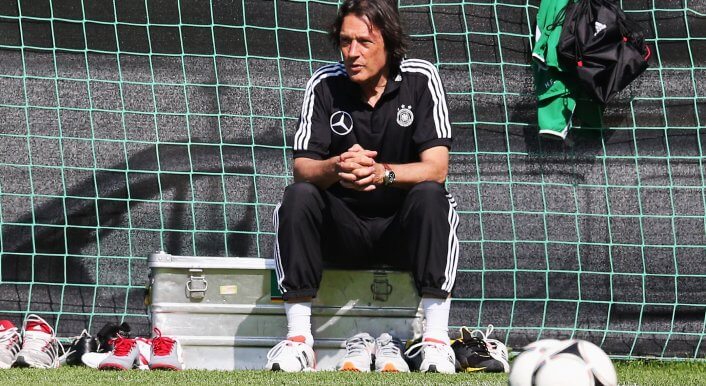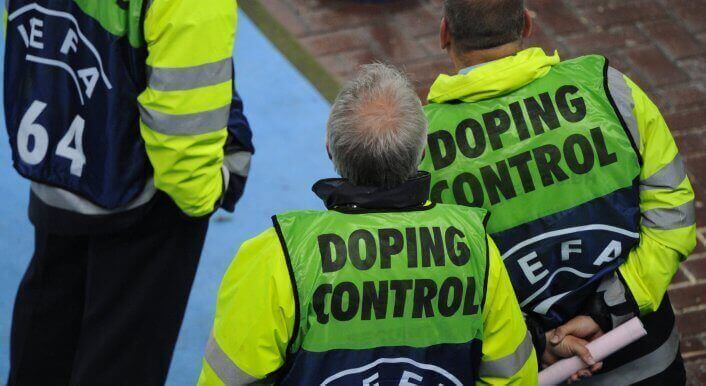Fifa and Anti-Doping: All surface
FIFA has reacted on the debate around doping-doc Eufemiano Fuentes. It sent out a press release, but this e-mail just rehashes things that were already known. WADA praised FIFA, although the fight against doping in football has big gaps.

Boss of FIFA and king of football Joseph „Sepp“ Blatter met John Fahey, president of World-Anti-Doping-Agency WADA, for a handshake on Thursday. At the end FIFA sent out a press release. FIFA testifies itself – with the help of John Fahey – that football does an awesome fight against doping. Some news orgs used this material to report on it. But this press release doesn’t contain any news at all, the plans for a biological profile have been known for a long time. And if they are that awesome isn’t clear at all.
“News“ have been known for long
Jiri Dvorak is – together with Michel D’Hooghe – Chief medic of FIFA. Dvorak announced last summer in an interview with footballdrugs.com a biological profile for the Confed-Cup 2013 and the World Cup 2014. Dvorak described the same system [in German], FIFA advertises as news.
The date of the press release – last Thursday – is noticeable, it’s published just a couple of days after the connections of doping-doc Eufemiano Fuentes to football, especially Real Sociedad San Sebastian, went public. That FIFA is getting active now contradicts the long-time knowledge of the doping-problem in football.
A timely press release from FIFA, but they've known about this Dr Fuentes problem for 7 years, and done precisely zero.
— Giggs?Boson (@giggs_boson) February 15, 2013
Moreover the new biological profile is not sufficient. The basic problem of football doping tests: They are not coordinated. FIFA takes blood and urine tests at its tournaments. Fine, but this doesn’t solve any problem, if there are no such tests the rest of the year. Athletes and doping-docs may adjust to the tests and circumvent them.
There are different problems:
- First: There are no news of a bigger cooperation between FIFA, UEFA and national federations. As long as tests are not coordinated, they are not as effective as possible. Recently it made news that there were doping-control-officers from German NADA and international UEFA at the same time in Leverkusen to take tests of different players..
- Second: There is a lack of doping tests in a lot of national federations. In Germany there are not blood tests, alledgedly these are too expensive for the German federation DFB. According to their own statements DFB is the biggest sports federation in the world. If they are not able to take blood tests…
- Third: FIFA is responsible for its own doping tests. It’s the same with a lot of national federations, e.g. in Germany. If federations do control their own players, this isn’t very trustworthy.
A reason why FIFA and its member federations don’t push the fight against doping as hard as possible: A lot of involved people don’t have an awareness of the problem: Vicente Del Bosque, Cristiano Ronaldo, Matthias Sammer (sports director of Bayern Munich) and Jürgen Klopp (Coach of Borussia Dortmund) think that doping in football is no trouble at all. Even FIFA chief-medic Jiri Dvorak says in an interview with us [in German], that he thinks blood doping in football is not existent.
“There are no signs of blood doping in football. A quarter of our tests were checked on EPO. At the World Cup 2002 we took blood parameteres of all players. The parameters were located on the bottom end of the scale, so there is no suspicion.“ – Jiri Dvorak, FIFA-Chief-Medic



